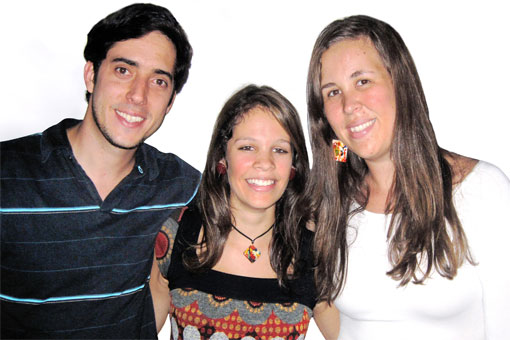If you are a young person in Venezuela, the odds of realizing your dreams are stacked against you.
Take, for example, Julio. He lives in La Vega, a high-crime neighborhood located on a hill in the southwest of Caracas. Julio, 17, attends school in the morning and works in the afternoon. A guitarist, he dreams of becoming a professional musician, but he can´t practice with his band at night because his barrio is too unsafe for cars to travel in after 8 p.m.
Or Margarita, 23, who dreams of setting up her own pastry shop. Most everyone she knows can’t stop eating her delicious desserts, but she has little chance of getting enough capital to start a business. Most banks are unwilling to lend her money, and even if she could get a commercial loan, the interest rates are steep.
Julio and Margarita have several things in common. They have the talent, skills and ambition to realize their life dreams, but they live in poverty-stricken and dangerous neighborhoods where their needs are easily ignored. The institutional neglect of the poor is partly responsible for high rates of crime and delinquency in our country, which, in turn, reduces economic opportunities. Although statistics are hard to come by, it’s estimated that Venezuela’s murder rate is 52 per 100,000 people, second only in the region to El Salvador. Those most affected are young males between the ages of 15 and 25.
But can any of us—rich, middle-class or poor—be who we want to be in Venezuela? Our generation shares one thing above all: we live in a polarized country whose leadership and national institutions largely neglect our interests and hopes. The situation is compounded by the country’s economic crisis: conservative estimates place inflation for 2010 in the range of 20 percent to 35 percent; in the third quarter of 2009, the GDP shrank at an annualized rate of more than 4 percent.
It’s up to our generation to change this cycle of despair and economic deterioration. In the 1970s and 1980s, young people did not get involved in public life. Meanwhile, as corruption and bureaucracy spiraled out of control, many people turned against electoral politics altogether, feeling that there was no way to effect change. As a result, the political system became more ossified and limited as political parties and the public sector failed to renovate their leadership. The political stagnation and corruption that resulted set the stage for a non-traditional, outside leader. That climate helped Hugo Chávez to win the presidential elections of 1998.
Today we are suffering a hangover caused by drinks we never actually drank. Our generation was born and raised in permanent crisis. It’s hard for any of us to build stable careers, especially at a time when the struggle between supporters and opponents of Chávez consists of each side demonizing the other, leaving almost no room for genuine public discussion. To enter into dialogue with “the other side” is considered a sign of weakness. Even the media, in its editorials, narrates two substantially different Venezuelas…



